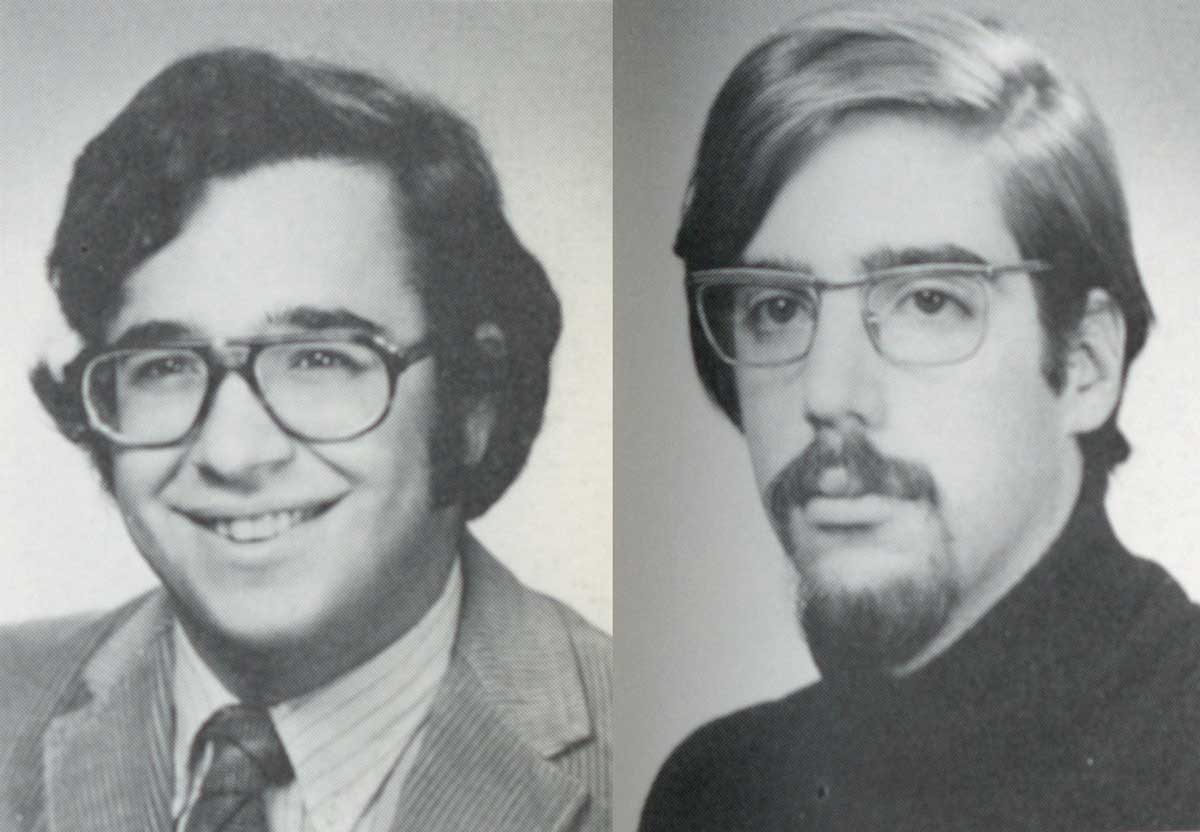Roommates rekindle their WHRW roots

Ellis Bromberg ’74 and Steve Ghitelman ’74 still marvel about how their lives were changed by a visit to WHRW’s open house during fall semester in 1970.
“Growing up, I was a big radio fan, so when I learned WHRW was looking for new staff, I had to go and check it out,” Bromberg says.
“Gates turntables! Remember those things? They could change speeds, and it was like shifting gears on a truck,” Ghitelman says.
It wasn’t long before the Endicott Hall roommates made the station a second home. Bromberg had a rock show, and Ghitelman spun blues records. In retirement, they’re on the air again, reconnected to their musical roots. Ghitelman has a blues show on WERAFM in Arlington, Va. He was a South Asia expert for the U.S. Department of State and retired in 2017. Bromberg hosts a program on American singers and songwriters at WQCS in Fort Pierce, Fla. He was a TV station manager in several markets (including WSKG in Binghamton) and oversaw Milwaukee’s PBS stations.
“Work was simply an interruption between radio stations,” Ghitelman says.
“I listen to Steve online and he’s great,” Bromberg says. “Since that first day in Endicott Hall, he’s been a blues expert and that still carries through.”
After hearing the first (and only) interview question during a conference call, they went back and forth for more than half an hour before asking, “Did we answer everything?”
“I was kicked off the station for playing ‘bubblegum pop,’ which was popular at the time on AM radio but frowned upon by WHRW management,” Bromberg says. “I took my case to the University’s ombudsman who directed that I be reinstated — after I agreed to cut out the offending music.”
“I’m glad you don’t nurse a grudge all these years later,” Ghitelman replies.
“Back in those days, the station signed off overnight,” Bromberg says. “You needed a third-class [FCC] license to turn the transmitter on. A lot of us went up to Syracuse to take the test. That’s not required anymore, but I remember that was a huge thing, getting your license.”
“Everything about it was so much fun you’d forget it was only 10 watts, and you could barely hear it off campus,” Ghitelman says. “To this day, WHRW is still the best-equipped station I ever worked at. After Binghamton, I went to a station in Madison, Wis., that was a pastiche of borrowed equipment.
“We were affiliated with Pacifica and did pledge drives. We’d get on the air and read the names of people who donated. Sometimes we read names out of the phone book and said, ‘Here are the people who didn’t contribute.’ I’m pretty sure that was illegal and immoral.”
Between laughs, the longtime friends shared more serious thoughts on how WHRW shaped them.
“I was hired as a stringer by WNBF radio to cover the Johnson City mayoral election in 1973,” Bromberg says. “That would eventually lead to a very satisfying 40-year career in broadcasting, and it wouldn’t have happened without those early experiences at WHRW.”
“In 1971, a caller wanted to hear Magic Sam,” Ghitelman says. “I was clueless, so I bluffed my way through it. I asked, ‘What has he recorded lately?’ and was told he had been dead for years. I learned there are so many problems you can avoid by saying ‘I don’t know.’”
